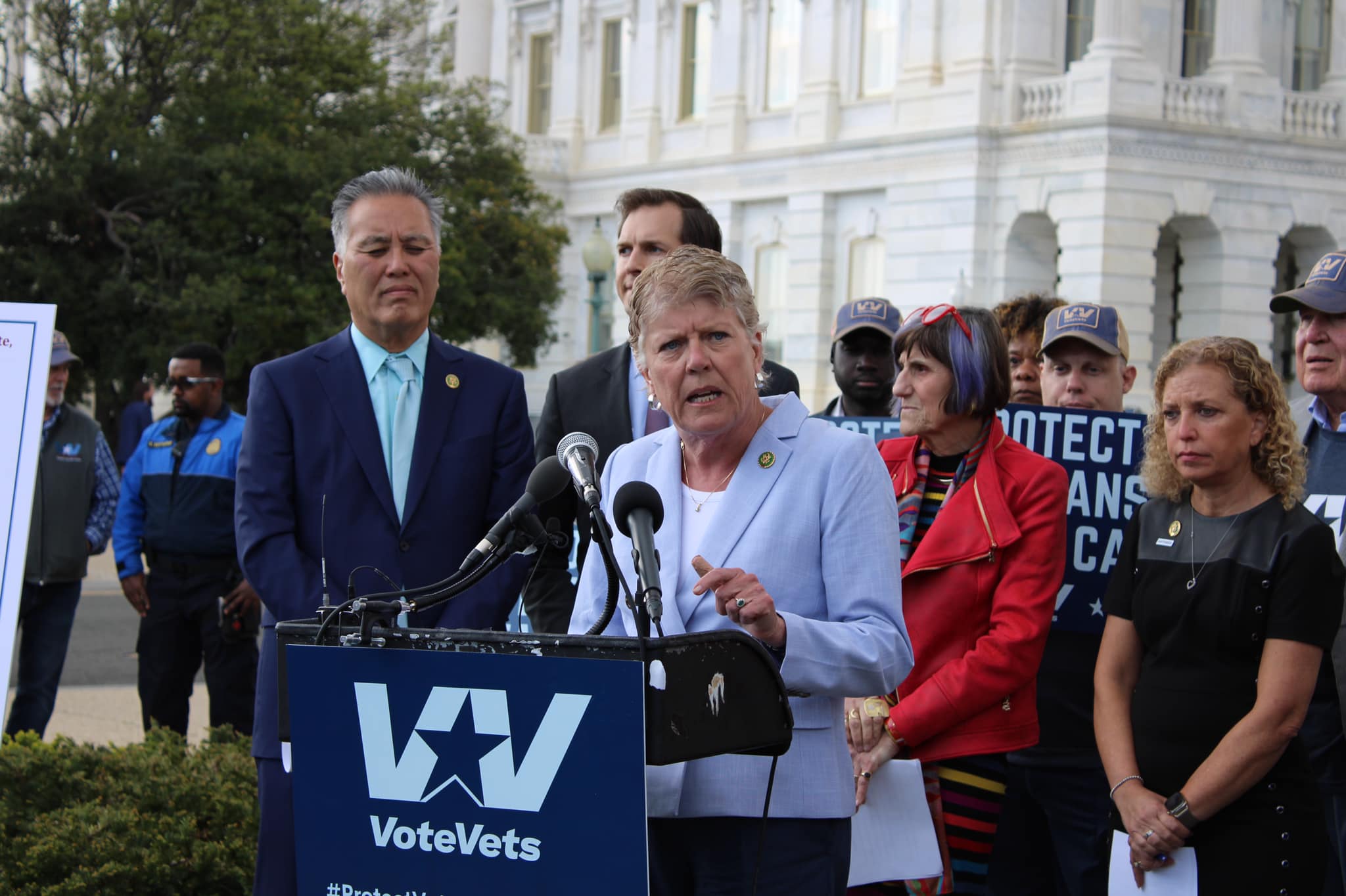
Washington, DC – Today, Congresswoman Brownley (D-CA) reintroduced the Driver Reimbursement Increase for Veteran Equity (DRIVE) Act, which would increase the beneficiary travel mileage reimbursement rate for eligible veterans with service-connected disabilities. Senator Peter Welch (D-VT) introduced companion legislation in the U.S. Senate.
“No veteran should have to decide between their health care and the rising costs of traveling to their appointments,” said Congresswoman Brownley. “The DRIVE Act is an essential step in easing this burden by ensuring that our veterans, especially those in rural areas and those with fixed incomes, are not penalized for seeking the care they have earned and deserve.”
“Our veterans have performed the ultimate public service. To honor that service, we must ensure that the cost of the war includes the cost of caring for the warrior, and that includes making long-overdue changes to help ensure that veterans traveling from rural and small communities can access the health care they need,” said Senator Welch. “Our bicameral bill improves access to care, lowers costs, and helps improve this out-of-date system for veterans, servicemembers, and their families moving forward.”
Background
In 2010, Congress passed legislation to set the U.S. Department of Veterans Affairs (VA) beneficiary mileage reimbursement rate at a minimum of $0.41 per mile – which at the time was comparable to rates federal employees were reimbursed for work-related travel. This law also gave the VA Secretary the authority to increase rates going forward to be consistent with the mileage rate for federal employees for the use of their private vehicles on official business, as established by the Administrator of the General Services Administration (GSA).
However, since the enactment of this law, the VA travel mileage reimbursement rate has remained stagnant, even while gas prices and other costs – like auto insurance and vehicle maintenance costs — have increased significantly. Meanwhile, the GSA rate has risen over time to $0.625 per mile.
The Driver Reimbursement Increase for Veteran Equity (DRIVE) Act would require the VA to ensure the beneficiary travel reimbursement rate is at least equal to the GSA reimbursement rate for federal employees. This will ensure VA’s reimbursement rates keep up with the cost of inflation and properly account for fluctuations in gas prices over time. It will also direct the VA Secretary to process these reimbursements within 90 days of submission, so veterans do not have to wait for such extensive processing times to receive their payments.
The Driver Reimbursement Increase for Veteran Equity (DRIVE) Act is endorsed by AMVETS, Military Officers Association of America, Military Order of the Purple Heart USA, Vietnam Veterans of America, Disabled American Veterans, and Paralyzed Veterans of America.
Read the full text of the bill, here.
###
Issues: 119th Congress, Veterans' Affairs